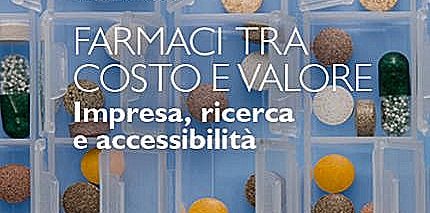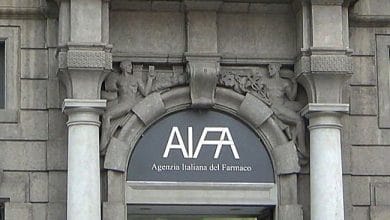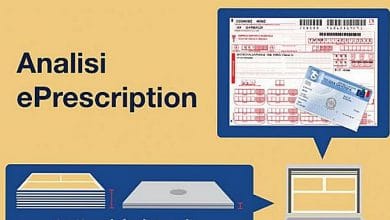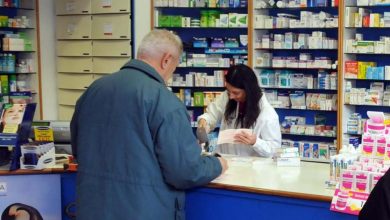
If in Italy about 12 million people are unable to get treatment, this reveals much more than the economic crisis of our health system: it reveals the state of health of our democracy, of that principle of equality of 1978. Because it was the year in which the establishment of the National Health Service, has been declined as a principle of equal access to treatment. The process of dismantling that model is revealed in the "financialization of the drug".
 In 2014, the Italian Medicines Agency defined Sovaldi (a new drug capable of eradicating the Hepatitis C virus) as an "unsustainable cost drug". The price was initially negotiated by the agency itself and by the multinational manufacturer Gilead at an estimated price of around 40,000 euros per patient for each complete cycle of therapy. To date, the National Health Service is not yet able to guarantee access for all patients to this innovative drug with proven efficacy. In recent years, the case has become sadly known in the news for the phenomenon of "health tourism" to countries such as India where it is possible to buy it at a price of around 700 euros. And this phenomenon is destined to repeat itself in the future for the new drugs arriving for which it is conceivable to negotiate prices that are economically unaffordable for the individual and unsustainable for the community.
In 2014, the Italian Medicines Agency defined Sovaldi (a new drug capable of eradicating the Hepatitis C virus) as an "unsustainable cost drug". The price was initially negotiated by the agency itself and by the multinational manufacturer Gilead at an estimated price of around 40,000 euros per patient for each complete cycle of therapy. To date, the National Health Service is not yet able to guarantee access for all patients to this innovative drug with proven efficacy. In recent years, the case has become sadly known in the news for the phenomenon of "health tourism" to countries such as India where it is possible to buy it at a price of around 700 euros. And this phenomenon is destined to repeat itself in the future for the new drugs arriving for which it is conceivable to negotiate prices that are economically unaffordable for the individual and unsustainable for the community.
The (global) question of denying access to high-cost innovative medicines is presented as a question of "economic unsustainability" for the National Health Service, when instead what is "socially unsustainable" is the absence of public intervention. Already in 1978 the law expressly affirmed the "social function of the drug" and the "main public purpose of production"; and today public intervention to guarantee access to medicines would have the opportunity to be implemented through multiple instruments: the granting of compulsory licences, self-production, transparency in the negotiation of the prices of reimbursable medicines, a "correct methodology for of costs".
In 1978, the same year in which the model of the Public Health Service was designed, the Italian Constitutional Court declared the illegitimacy of the law which forbade the patentability of drugs. Among the arguments of the Consulta: the absence of a correlation between the price increase and patent coverage, the presence of an incisive authoritative public intervention and the need to guarantee the pharmaceutical industry (through the patent) to cover the costs of research. These arguments would not be tenable today. Let's take the same case of Sovaldi as an example: Gilead did not invest in innovation but acquired the company that had patented the drug (Pharmasset) and the Italian drug agency itself (which negotiates the cost of reimbursed innovative drugs with the manufacturers) reports that through the drug Sovaldi, Gilead saw its corporate value grow significantly, proposing a price (later negotiated) much higher than that initially imagined by Pharmasset.
 Faced with the evidence of the denial of access to medicines, in March 2017 a circular from the Ministry of Health authorized the "import for use" of medicines registered abroad even when «access to medicines available in Italy is not possible for the patient, as the same patient does not fall within the eligibility criteria for treatment for the delivery of the medicine at the expense of the National Health Service, or due to its excessive burden". The circular addresses the problem of denying access to high-cost innovative medicines in emergency terms and increases inequalities; affects the principles and effectiveness of health protection in the public health service.
Faced with the evidence of the denial of access to medicines, in March 2017 a circular from the Ministry of Health authorized the "import for use" of medicines registered abroad even when «access to medicines available in Italy is not possible for the patient, as the same patient does not fall within the eligibility criteria for treatment for the delivery of the medicine at the expense of the National Health Service, or due to its excessive burden". The circular addresses the problem of denying access to high-cost innovative medicines in emergency terms and increases inequalities; affects the principles and effectiveness of health protection in the public health service.
The question, which is destined to arise again for other pathologies, different from hepatitis C, is representative of a different way of understanding the protection of health and more generally the rights of the person. An increasingly "individual" protection, very different from what the Constituents affirmed as a fundamental right and interest of the community (therefore in a double meaning, individual and collective together).
The issue is not only national. In the face of the global drug market, a European pharmaceutical policy is needed. The European Medicines Agency (EMA) has no competence in negotiating the prices of reimbursable medicines and does not represent "the Europe of medicines". Its headquarters are in London, but for a short while, pending the inevitable move after Brexit. Several European cities are applying to welcome the new headquarters. For Italy: Milan. The imagined headquarters: Palazzo Pirelli. Prime Minister Gentiloni presented the candidacy as "a great opportunity for our country". We would like to be able to hope that our institutions by "great opportunity" mean the opportunity to define a European pharmaceutical policy, to coordinate national agencies and to oppose the negotiation of unsustainable prices for new medicines.
Alice Cauduro University of Turin. Author of Access to drugs, Milan, Ledizioni, 2017
Related news: Hepatitis C, Milanese pensioner wins legal battle: low-cost life-saving drugs from India
Import of medicines authorized abroad, clarifications by Minister Lorenzin





